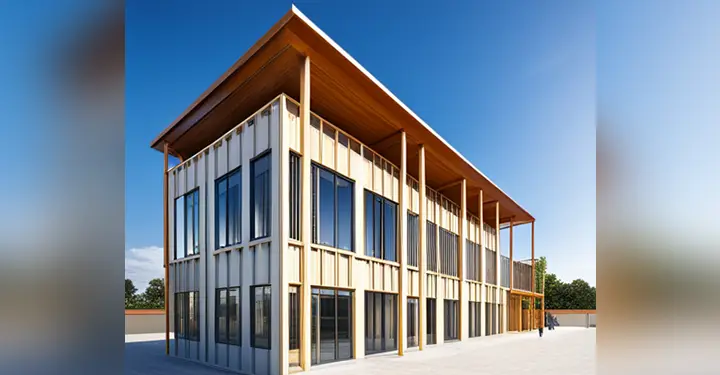Our Articles

Is DfMA Helping Progress the Construction of Educational Institutes?
It’s time design went back to school and maybe even colleges or other educational institutes. As the mode and means of education keeps evolving, so must the construction of spaces of educational instruction. What kind of message would it send students if they didn’t? Modular building design for educational institutes can be functional and innovative. Using prefabricated construction modelling, modular construction services and fabrication drawing services can help progress the construction of schools and colleges.
Increasingly, schools across the world have become mindful of sustainability, not just by paying it lip service but by actively initiating sustainable and efficient development of school Infrastructure. One such initiative is to use Design for Manufacture and Assembly (DfMA) in construction design.
A design and build process, DfMA incorporates the manufacture of building parts, such as wall systems and facades, in a secure, clean and efficient factory setting with on-site assembly.

What are the advantages of using DfMA in educational institute design?
To know more about DfMA . . .
Design for modular construction has helped and will continue to help create sustainable and progressive educational structures through DfMA modelling and drawings. Interfacing with BIM technology, DfMA in building design and construction can also turn to prefabricated construction BIM workflows to progress the construction of educational institutes.
XS CAD has valuable experience providing prefabricated construction BIM services and modular construction services for general contractors. Our range of services for consultants and manufacturers across the world include fabrication drawing services, prefabricated construction modelling, DfMA modelling and drawings, modular builing design and design for modular construction. We create these models and drawings using Revit, AutoCAD and BIM Collaborate Pro for cloud collaboration.

